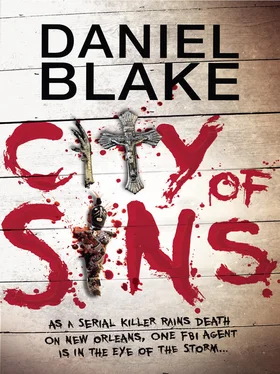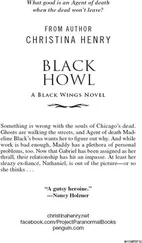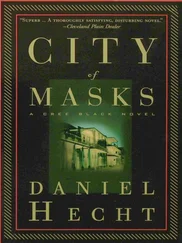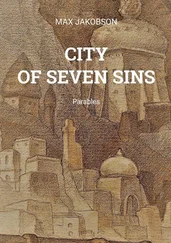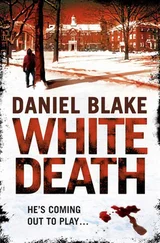Spoilsports.
Patrese was there quarter of an hour early. The moment he walked in, he was glad he’d changed between leaving work and coming here. Collar shirt and flannel pants would have marked him out a mile off as a stiff trying to unwind, but with a faded Pitt T-shirt and battered jeans, he blended right in.
Checkpoint Charlie’s is located pretty much right on the spot where the French Quarter fades into Faubourg-Marigny; which was to say, right on the spot where most tourists turn on their heels, because their guidebooks mark the edge of the Quarter as the edge of the known world, with bohemian Faubourg one of those uncharted territories on medieval maps emblazoned with the warning Here Be Monsters.
Patrese ordered an Abita and looked round. It was somewhere between a biker bar and a college hangout; pretty empty at the moment, but doubtless hopping in the small hours, even hotter and sweatier than it was already, if that were possible.
A blackboard announced live bands later that night. Somewhere to his left, pool balls clacked against each other. A ceiling fan moved lazily overhead.
He’d tried to work out a hundred times how to play this, and still had no clear answer. But sitting here, listening to other people’s laughter, Patrese decided just to go with the flow; trust his instincts, take it from there. Cindy had called the meeting. Let her make the running.
Eight o’clock came and went.
He wasn’t especially bothered. New Orleanian attitudes to time are pretty loose; not surprising, perhaps, when half the city’s bars are open round the clock.
Maybe Cindy had been held up at work. Maybe she was plucking up courage, which round here usually involved a couple of daiquiris. Maybe she was playing hard to get; make him wait, establish her terms.
There was a fire station right across the road, and a bunch of firemen were sitting out front, admiring the girls who walked past. Most of the girls seemed happy to admire them right back.
Eight thirty.
Patrese would have rung, but he didn’t have Cindy’s number. She hadn’t given him her cell. If she was still at work, Varden would be there too, so she wouldn’t be able to talk. He could see if she was in the phone book, but that might appear too creepy, finding out where she lived and ringing up.
He was hungry. The menu said that Checkpoint Charlie’s burger and chips were famous as far as Berlin – Berlin, Germany, not Berlin, Connecticut – which made him laugh, so he ordered that, medium rare.
A dark-haired girl came in. For a moment, Patrese thought it was Cindy, but she was too tall, and not nearly as attractive. She had a bag of laundry slung over her shoulder, and he watched with mild surprise as she walked straight through the bar and into a laundromat out back.
What a great idea. Separating lights and darks would be much more fun with a few tequilas inside you. Why had no one else ever thought of that?
Unlike some people, Patrese didn’t mind sitting in a bar on his own, but only if he’d gone there alone to start with. Waiting was something else entirely. He dropped his shoulders, told himself to relax.
‘Here you go, baby,’ said the waitress, setting his burger and another Abita down on the table.
The menu was right; the burger was well worth its international fame.
Nine o’clock.
She wasn’t coming; he was sure of that now. An hour late meant no-show, even in New Orleans. The disappointment surged in his throat. He’d really wanted to know what she’d found so terrible.
And to see her again too, of course.
Sirens out front, the endless two-tone urban soundtrack. A cop car streaked by, an ambulance hard on its tail, pushing through behind before the traffic could reform.
The moment the clock ticked nine thirty, he paid the check and got up to leave.
‘Do you have a phone book here?’ he asked, so suddenly it surprised him.
‘Surely.’ The bartender nodded toward a payphone in the corner. ‘Should be one right there. Probably covered in graffiti by now. Everyone’s a comedian, you know?
The directory was indeed there, and it was indeed covered in graffiti.
Patrese flicked through to the ‘R’s.
Rojciewicz, C. Only one of them. An address on Spain Street, five minutes’ walk from the bar. Presumably why she’d chosen it as a meeting-point in the first place.
Patrese entered the number into his cell and walked outside while it dialed.
It rang eight, nine, ten times. No one home.
He was about to hang up when a woman’s voice answered. ‘Hello?’
‘Cindy?’
A slight pause – and call it years of experience, call it having been on the other end of this plenty of times before, call it whatever, but in that moment, Patrese knew what the woman’s next words were going to be, and that having to say them was one of the worst things in the world.
‘Are you family?’ she asked.
Bee-striped tape, rotating blues and reds, radio chatter, stern-faced cops, neighbors crowded wide-eyed and soft-voiced; the tropes of a homicide scene, unvaried from Anchorage to Key West. Patrese felt at home; he knew his way round such places.
He flashed his Bureau badge, ducked under the tape, and went inside. The building was a nineteenth-century town-house subdivided into condos. Cindy’s was on the top floor, and Patrese was sweating by the time he reached her apartment door.
Not just from the heat, either. No matter how many times a man inhales the rank sweetness of death, he never becomes used to it, not really, not properly. Especially not in the sauna of a Louisiana summer.
Selma appeared in the doorway. She was half a head shorter than Patrese, and her eyes blazed with an anger that he instinctively thought of as righteous.
‘Who the heck are you?’ she snapped.
He showed his badge again. ‘Franco Patrese, from the …’
‘I can see where you’re from. The Federal Bureau of Interference.’
‘Hey, there’s no need for that.’
‘No? How about Freaking Bunch of Imbeciles? You like that one better?’
‘Listen, I’m here because …’
‘Yes. Why are you here? Picked it up on the scanner and had nothing better to do? Let me tell you something, Agent Patrese. We, the NOPD, are perfectly capable of solving homicides all by ourselves, you know? It’s not like we don’t get enough practice. So don’t call us, yes? We’ll call you.’
Patrese recognized Selma from coverage of the Marie Laveau trial, which meant he knew why she was pissed at the Bureau. Marie had managed to cast doubt on the legality of the Bureau’s surveillance procedures: technicalities, sure, but things the Bureau should have made certain of to start with. And that doubt had played well with the jury. It might not have made the difference, but it had certainly made a difference.
So Patrese didn’t blame Selma. In any case, he’d been the other side of the fence himself, and he knew that, even without high-profile trial fuck-ups, pretty much every police force in the land resented and envied the Bureau in equal measures. It was a turf war, simple as that, as atavistic and ineradicable as all conflict. The turf caused the war, and there would always be turf; therefore there would always be war.
‘I was supposed to meet her tonight,’ he said.
The woman cocked her head. ‘You the one who rang just now?’
‘Yes.’
‘You a friend?’ She said it in a tone which suggested disbelief that Bureau agents would ever have friends.
‘Business. She, er, she said she had something to tell me.’
‘Like what?’
‘I don’t know. She never showed. Now I know why.’
‘This something – you think it was important?’
‘I’m certain it was.’
Читать дальше
